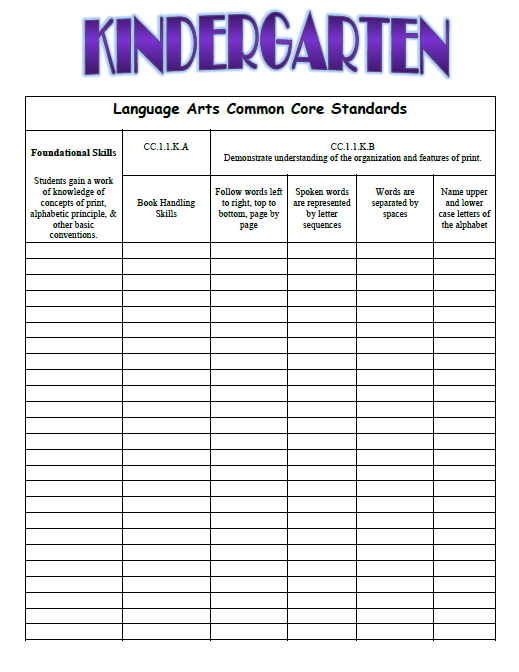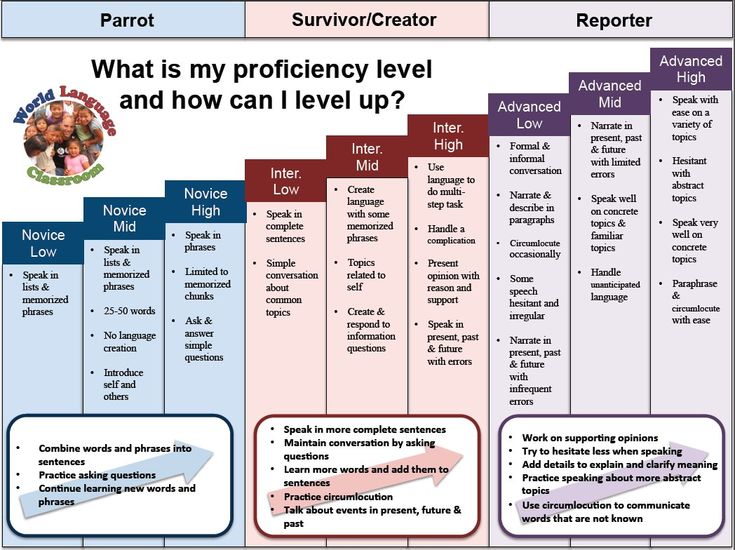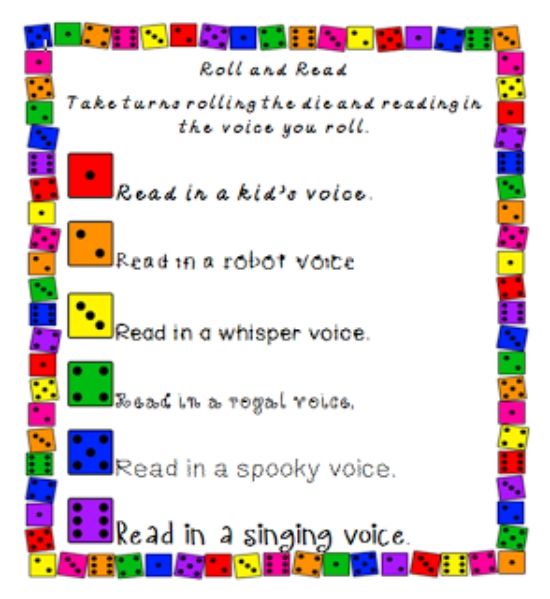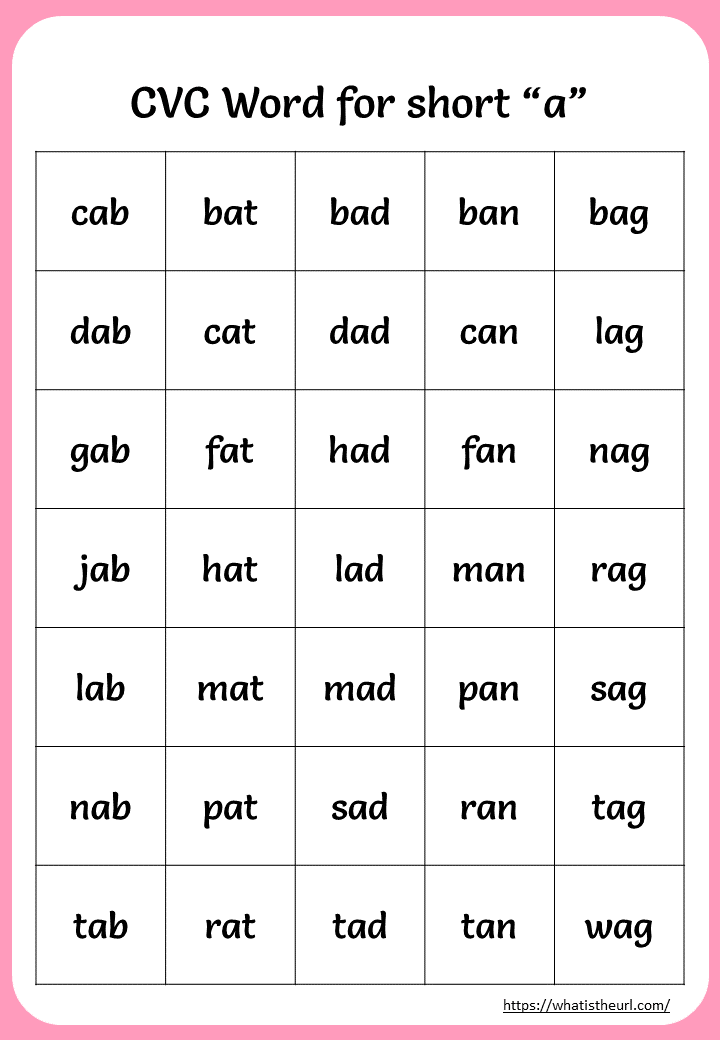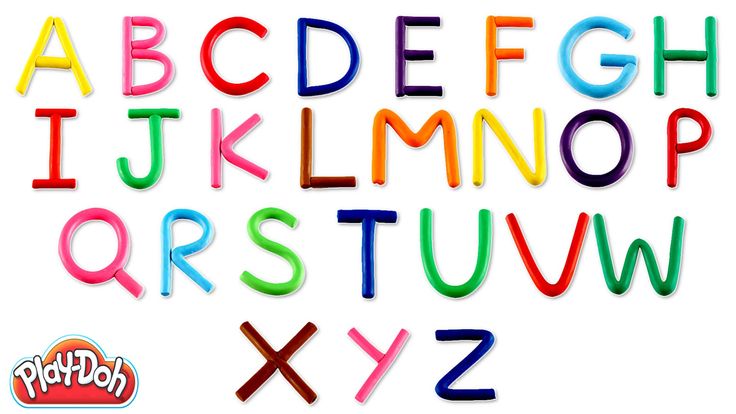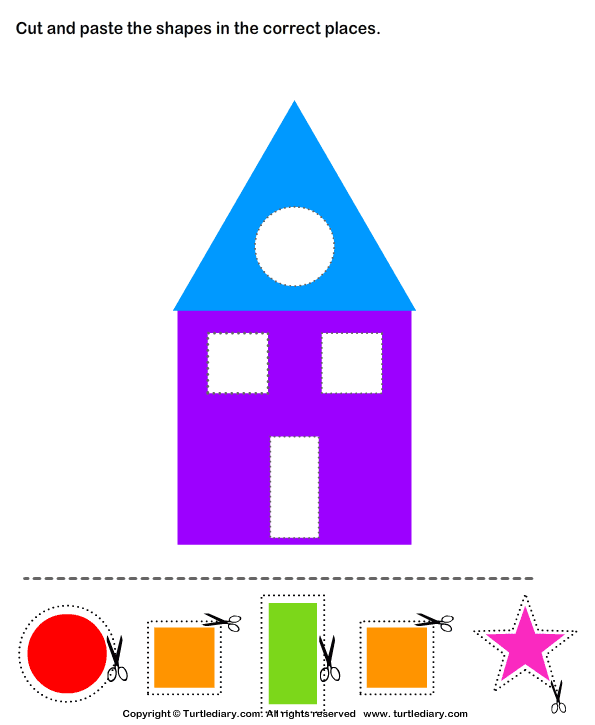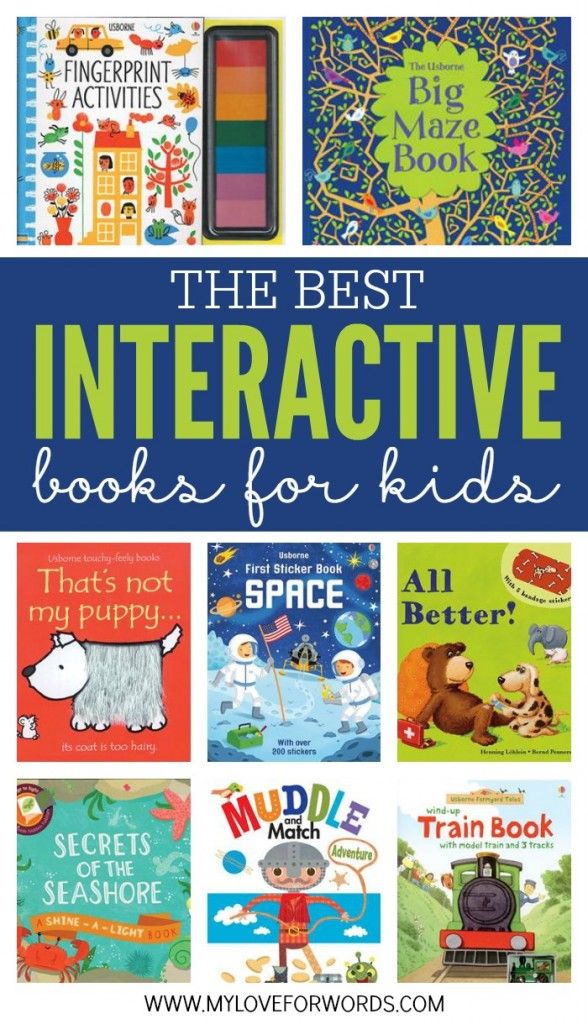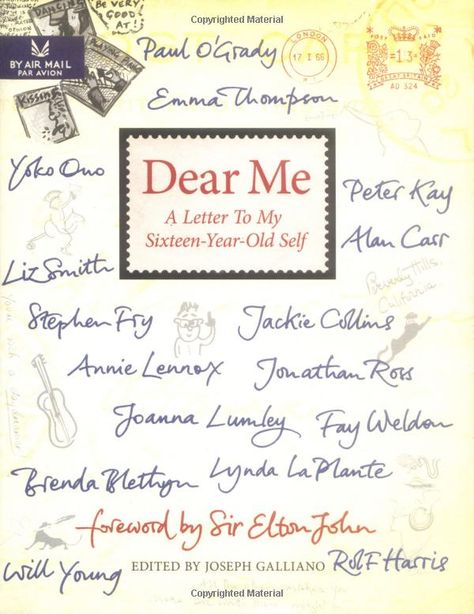Checklist for kindergarten skills
Kindergarten skills checklist
- Reading & Writing
- Mathematics
- Logic & Problem Solving
- Science
- Social Studies
- Creativity & Life Skills
- Personal & Social Skills
- Language Learning
Is your child ready for kindergarten? Refer to this skills checklist.
Is your child ready for kindergarten? Although each child is unique and develops at his or her own pace, most educators and developmental experts agree upon a certain set of skills as essential tools for further development and achievement in school. Here’s a checklist of the developmental skills children need exposure to and knowledge of before they enter kindergarten.
Social skills
- Uses words to solve problems or conflicts
- Uses words like please, thank you and excuse me
- Adjusts to new situations
- Attempts new tasks knowing it’s okay to make mistakes
- Shows pride in accomplishments
- Follows a simple direction
- Stays with an activity to completion
- Asks for help
- Interacts appropriately with adults and peers
- Respects the rights, property and feelings of others
- Works cooperatively (listens to others, shares and takes turns)
- Demonstrates increasing self-control
- Participates in clean-up activities
- Takes responsibility for own belongings (lunch, coat, etc.
)
- Is able to dress self
- Adheres to a routine and schedule for personal hygiene, eating meals and going to bed
- Uses good hygiene habits and table manners
- Uses appropriate bathroom skills
- Follows simple safety rules
- Offers to help peers and family
- Tries to regulate emotions properly and articulates feelings in words
Motor skills
- Puts puzzles together
- Cuts with scissors
- Holds and uses crayons, markers, pens and pencils correctly
- Builds using blocks
- Tries to tie own shoes
- Bounces, kicks, throws and catches a ball
- Rides a tricycle
- Enjoys outdoor activities, like running, jumping and climbing
Reasoning & concept development
- Matches or groups objects according to size, shape or color
- Groups objects that are the same
- Understands concepts of in/out, under/over, on/off, front/back, etc.
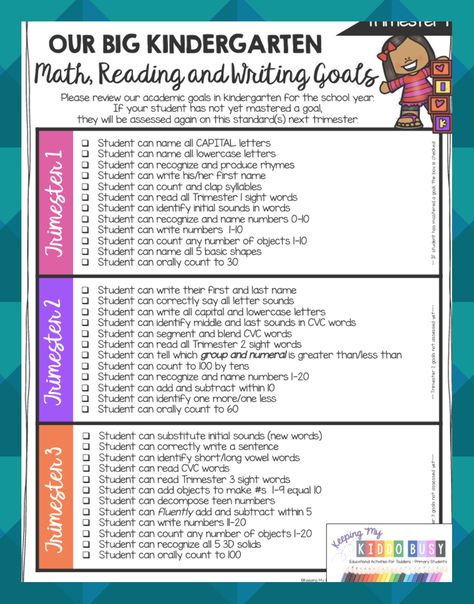
- Shows an understanding of the passing of time, including concepts of before and after, and today, yesterday and tomorrow
- Experiments enthusiastically with new games and toys, sometimes in a trial-and-error manner
- Describes how objects are the same or different
Language skills
- Talks in sentences
- Follows one- and two-step oral directions
- Uses sentences that include two or more ideas
- Uses descriptive language
- Knows by heart and recites some common nursery rhymes and songs
- Pretends, creates and makes up songs or stories
- Tells or retells stories and/or everyday experiences
- Asks questions and expresses curiosity
- Expresses ideas so that others can understand
Reading skills
- Looks at books or pictures on their own
- Pretends to read books by reading the pictures
- Tries to read in everyday situations (signs, labels, etc.)
- Recognizes rhyming words
- Blends sounds into words
- Recognizes some common words in print
- Recognizes many uppercase and lowercase letters
- Recognizes some letter sounds
- Describes characters’ actions and feelings in a story
- Relates stories to personal experiences
- Puts events of a story in order
Writing skills
- Tries to write, scribble or draw
- Asks you to write words or notes to others
- Attempts to write own name and recognizes own name in print
Mathematics concepts
- Compares the size of groups of objects using language such as “more,” “less” and “same as”
- Arranges objects in size order (big to small, or small to big)
- Uses comparison words, like "bigger," "smaller," "heavier," etc.
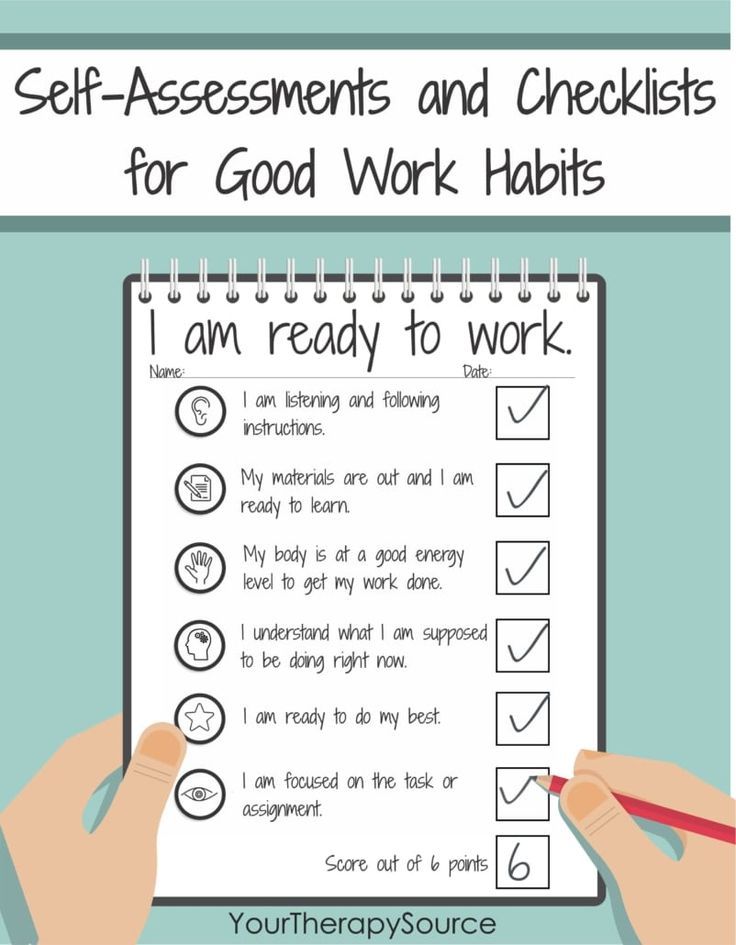
- Understands concepts of none, some and all and more than and less than
- Identifies and draws a square, circle and triangle
- Correctly counts four to ten objects
- Knows that the final number counted represents the total number of objects in a set
- Recognizes some numbers, 1 – 10
- Can distinguish numbers from letters, and understands that numbers relate to quantity
- Understands the effects of addition and subtraction
Science
- Shows interest and asks questions about objects and events observed in their environment
- Notices common properties and differences among objects and materials
- Knows some facts about common plants and animals, such as what they eat and baby names
- Recognizes some objects in the sky such as the sun, moon, clouds and lightning
Creative arts & music
- Recognizes and names basic colors
- Draws recognizable shapes and simple objects
- Tells a story with pictures
- Moves to a beat
- Explores with common musical instruments
- Enjoys improvising or copying musical patterns
Social studies
- Recognizes basic traditions such as birthdays
- Understands that people live in different parts of the worlds and have different customs and traditions
- Explores simple maps and visual representations of neighborhoods or communities
Kindergarten Readiness Checklist | Understood
When kids are getting ready for kindergarten, many families wonder about academic skills.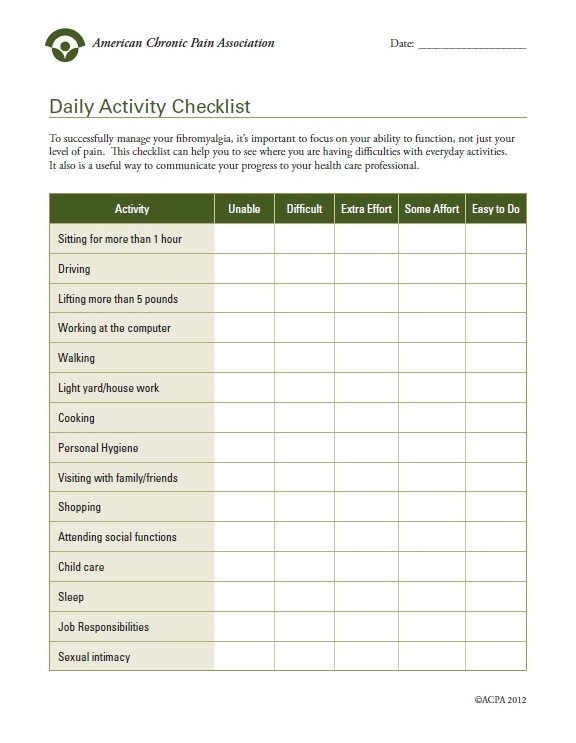 But self-care and social and emotional skills are important for kindergarten readiness, too. For example, does your child need help using the bathroom? Learn about the different kinds of skills kids are expected to have when they start kindergarten.
But self-care and social and emotional skills are important for kindergarten readiness, too. For example, does your child need help using the bathroom? Learn about the different kinds of skills kids are expected to have when they start kindergarten.
Language skills
- Speak in complete sentences and be understood by others most of the time
- Use words to express needs and wants
- Understand two-step directions
- Make comparisons and describe relationships between objects like big/little, under/over, and first/last
Reading readiness skills
- Enjoy listening to stories
- Know how to find the first page of a book and which way to flip the pages
- Recognize familiar logos and signs, like stop signs
- Recite the alphabet and identify most of the letters
- Recognize and try to write their own name
- Recognize when two words rhyme (like cat and bat)
- Start to connect letter sounds to letters (like the sound of the first letter in their name)
- Draw a picture to help express an idea
Math skills
- Count from 1 to 10 without skipping numbers
- Match a number to a group of five or fewer items (“I see three cats”)
- Recognize and name basic shapes (square, circle, triangle, rectangle)
- Understand more than and less than
- Arrange three objects in the right order (like from smallest to biggest)
- Name or point to the colors in a box of eight crayons
Self-care skills
- Use the bathroom and wash up on their own
- Get dressed on their own (but may still need help with buttons, zippers, and shoelaces)
- Know and can say their first and last name and age
Social and emotional skills
- Separate from a parent or caregiver without getting overly upset
- Interact with other kids
- Pay attention for at least five minutes to a task an adult is leading, like listening to directions for an activity or discussing the day’s weather during circle time
Fine motor skills
- Use a pencil or crayon with some control
- Use scissors
- Copy basic shapes
- Make distinct marks that look like letters and write some actual letters, especially the ones in their name
- Put together a simple puzzle
Gross motor skills
- Run
- Jump with feet together
- Hop on one foot
- Climb stairs
- Bounce a ball and try to catch it
How to help your rising kindergartner
Kids develop skills at different rates.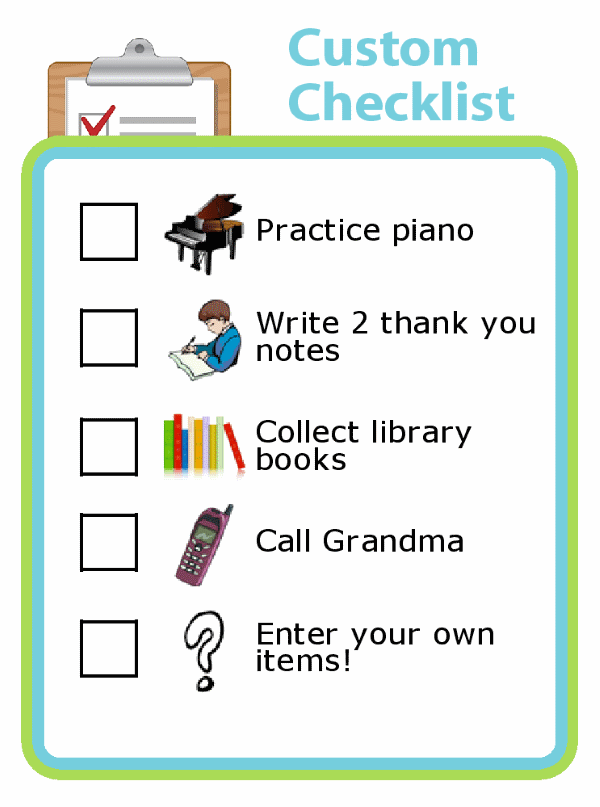 It’s not unusual for kids to have strong skills in one area and weak skills in other areas. Some states use kindergarten readiness tests to get a sense of which early learners might need extra help in some areas.
It’s not unusual for kids to have strong skills in one area and weak skills in other areas. Some states use kindergarten readiness tests to get a sense of which early learners might need extra help in some areas.
If you’re concerned your child isn’t ready for kindergarten, talk with your child's preschool teacher and work together to come up with a plan to address any trouble spots. You might also want to talk with your child’s health care provider. Learn about the pros and cons of delaying kindergarten for a year.
If your child is headed for kindergarten, explore these steps for a smooth transition. You might also want to see a set of videos on what kindergarten academic skills look like in action.
Key takeaways
Kids develop skills at different rates and might be strong in some areas and weak in others.
Some states use kindergarten readiness tests to see if kids need extra help in certain areas.
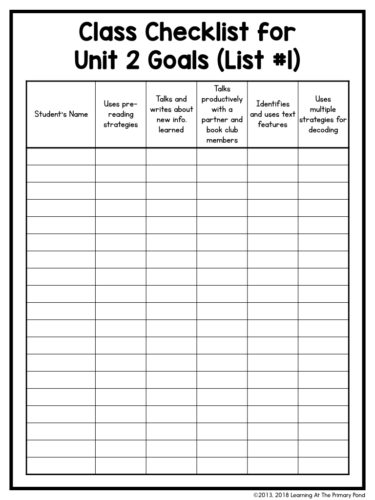
If you’re concerned your child might not be ready for kindergarten, talk to your child’s preschool teacher about how to help.
Tell us what interests you
About the author
About the author
Amanda Morin is the author of “The Everything Parent’s Guide to Special Education” and the former director of thought leadership at Understood. As an expert and writer, she helped build Understood from its earliest days.
Reviewed by
Reviewed by
Kristen L. Hodnett, MSEd is a clinical professor in the department of special education at Hunter College in New York City.
Readiness of the child for school. Guide for teachers and parents.
- Vasilyeva Ekaterina
- Apr. 9, 2021
- Preparation for school
What is school readiness and how do you know if your child is ready for first grade?
This guide is written for parents and educators and provides a comprehensive overview of the skills and abilities needed to succeed in school.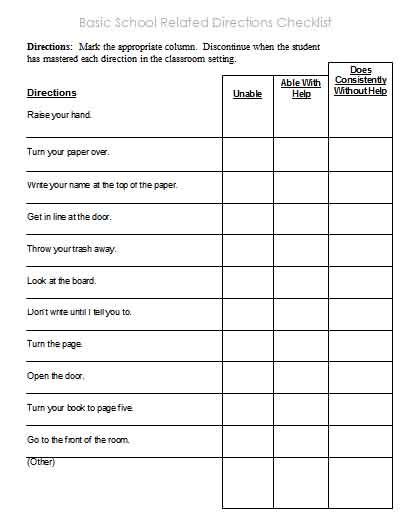 We have prepared a checklist for checking your child.
We have prepared a checklist for checking your child.
Read on to learn about preparing your child for school and what you as a parent can do to make learning easy.
What is school readiness?
In early childhood education, school readiness refers to a child's readiness to benefit from formal education in a group context.
This means that the child has acquired the necessary skills to cope and succeed in the first grade of school.
The first grade of the school is the first formal year. All years prior to this grade are considered informal learning. Depending on which country you live in, this year is called prep, admissions, class R, or zero.
Kindergarten Readiness
The checklist below can be used as a guide for general kindergarten skills. Your child does not need to know letters, sounds, numbers to go to kindergarten, but he must have skills such as independence, gross motor control, phonological awareness.
Although most of the recommendations are for Kindergarten, don't wear down your child with formal learning in the form of special classes, since Kindergarten should still have a lot of playful learning.
The year before the first grade is also considered an important year and is mainly a semi-formal preparation for the start of full schooling.
Is school readiness important?
If you want your child to reach their full potential and really benefit from formal education, it's important to be prepared.
When children go to the first grade for which they are not ready, not only do they not benefit from the learning process, but they often regress. It becomes difficult for them to study, which negatively affects their self-esteem and emotional state.
Children may struggle to socialize within the class, but due to lack of maturity there are problems in social development.
Therefore, to be ready for the first grade, children must be ready in all areas of development - social, emotional, cognitive and physical.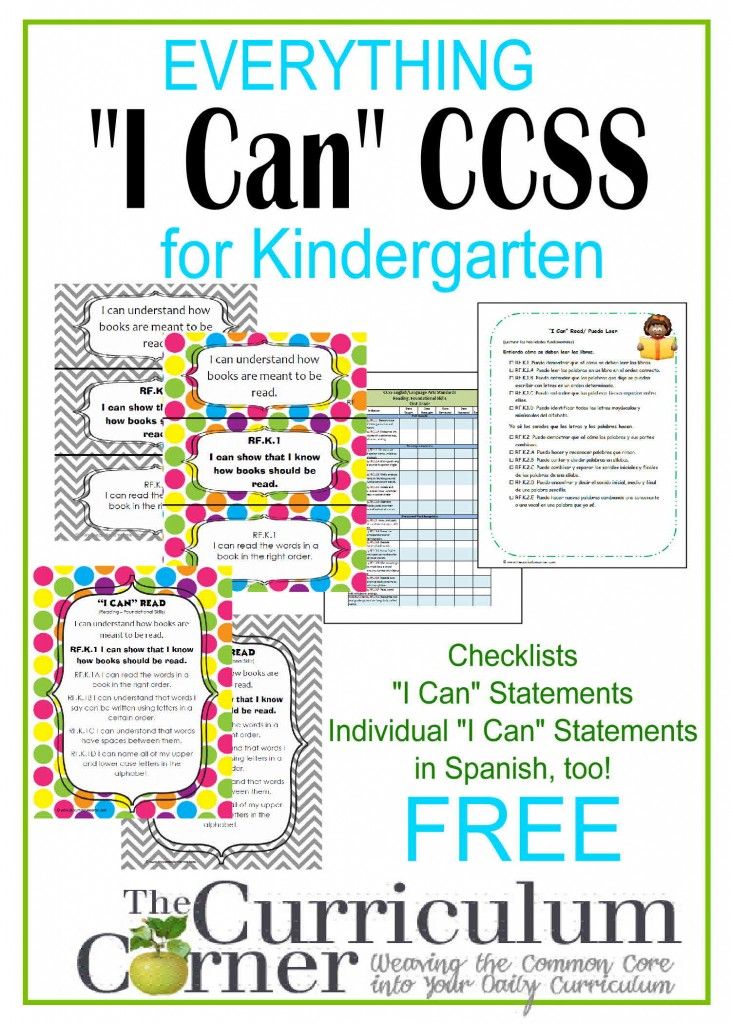
If you are a teacher or a parent who understands the importance of the general intellectual development of the child and appreciates the importance of the game approach for preschoolers, you will enjoy a comprehensive school preparation program for children.
Often the reason that a child repeats the year in kindergarten is that one of the areas of his development is not fully formed - for example, their social or emotional.
Repetition usually benefits the child as he feels more prepared and capable of formal learning.
How is school readiness measured?
Unlike a high school student taking an exam, the holistic development of a young child cannot be measured with a test.
This is true because much of their readiness is related to physical, emotional and social maturity.
Ready for school
A child's readiness for school can be tested by comparing how your child interacts and behaves with other children of the same age.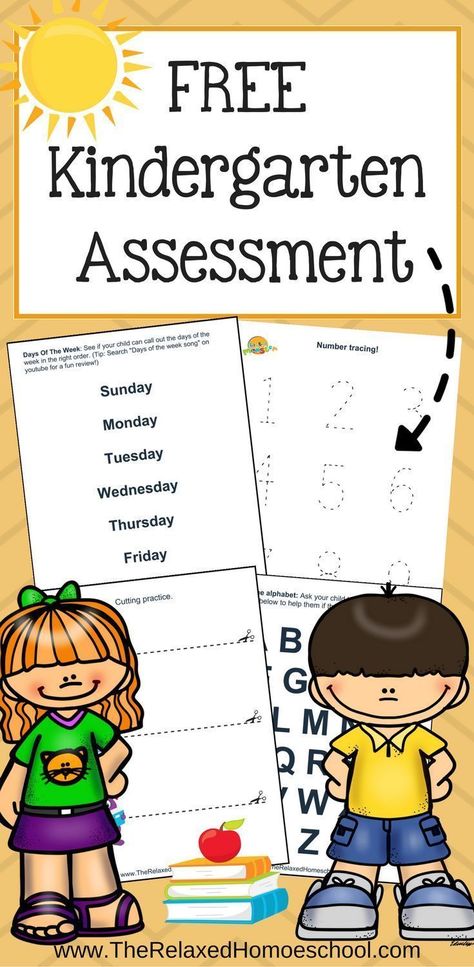
Parents can usually tell if their children are ready, and the teacher can tell if the child is generally ready or not.
There are no exact criteria and no real way to establish 100% readiness, because all children are completely different and develop at different speeds. They also have different strengths and weaknesses.
All online readiness tests have different criteria, although they are about the same. This is because there is no exact number of skills that a child must be able to do in order to cope in school.
The checklist is just a general guide.
So children are ready for school when:
- They meet most of the criteria on the checklist
- They can manage in a formal setting
- They are emotionally mature
- They interact and behave in the same way as their peers of the same age
Readiness, of course, is not an exact science. Each child is unique and it is not correct to compare him with another child, however, some comparisons will be useful for you as a parent.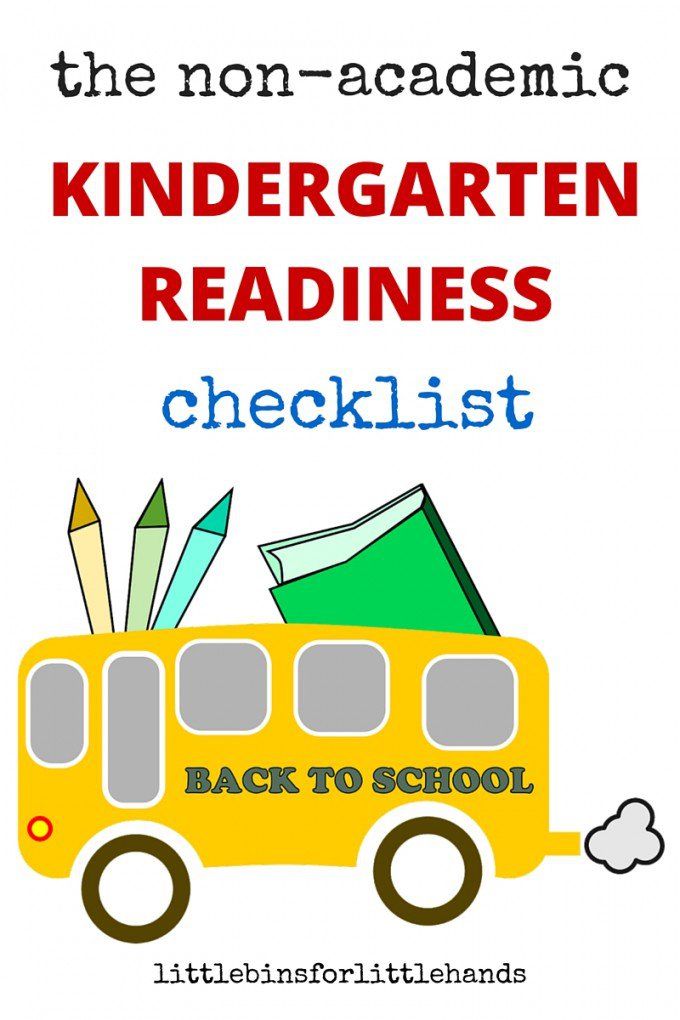
For example, your child can only focus on a task for 1 minute, but most of the group can focus for 10 minutes, this is a sign that your child will have difficulty in first grade.
So, when your child is tested on the checklist, it is not necessary to meet all the criteria, but must meet most of them.
School Assessments
Some schools prefer to conduct school readiness assessments with children entering first grade.
This test is usually quite short as children of this age have a limited concentration range.
This type of assessment usually involves testing certain skills, such as the child's auditory memory or phonological awareness.
This test is not a perfect measure of a child's ability, as children may feel nervous when asked questions in a new environment. However, the teacher conducting the assessment needs to understand this and make the test fun and interactive.
Such assessments can give some indication of a child's abilities.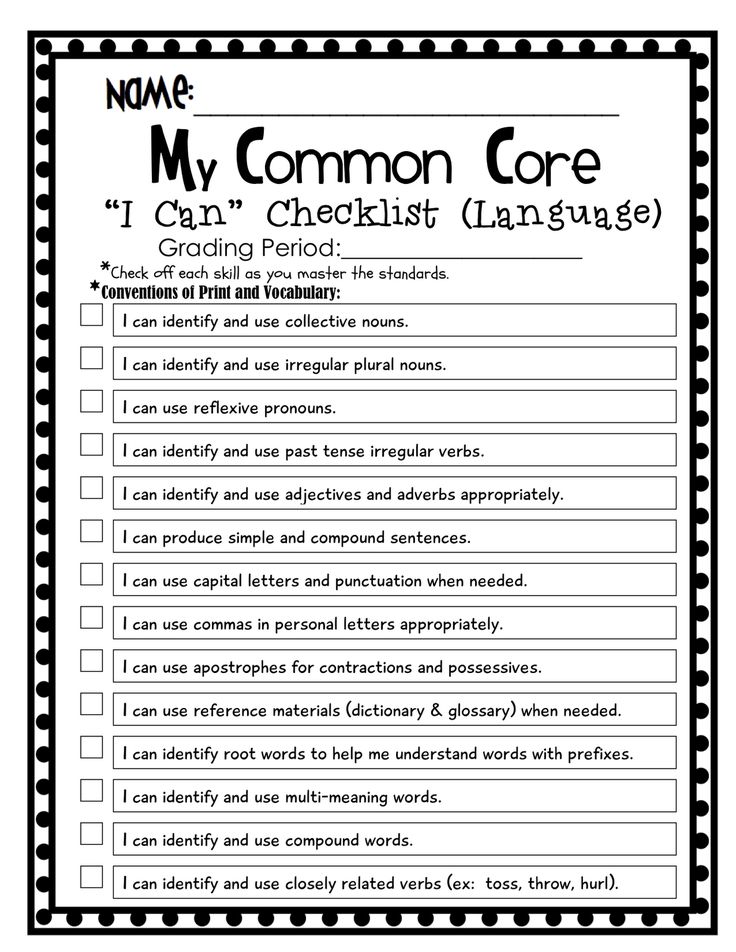 There will not be a strict measurement of criteria here, but rather an opinion will be formed about the child's perceived overall ability to fit into the class.
There will not be a strict measurement of criteria here, but rather an opinion will be formed about the child's perceived overall ability to fit into the class.
Usually, when a parent is told that your child is not ready for school, it means that there is an obvious gap or that the child is not yet mature enough.
Repeating a year in kindergarten is not a problem, as long as the child is fully prepared for formal education.
Ultimately, the decision should always be based on what is best for the child.
Signs that your child is not ready for school
These are very general recommendations, but if you see your child in the following points, he may need extra time to mature:
- Looks younger than his peers
- Has short attention span and poor concentration
- Difficulty distinguishing between left and right
- Poor hand-eye coordination.
- Clumsy or uncoordinated movements
- Fine motor problems such as cutting with scissors, holding a pencil, etc.
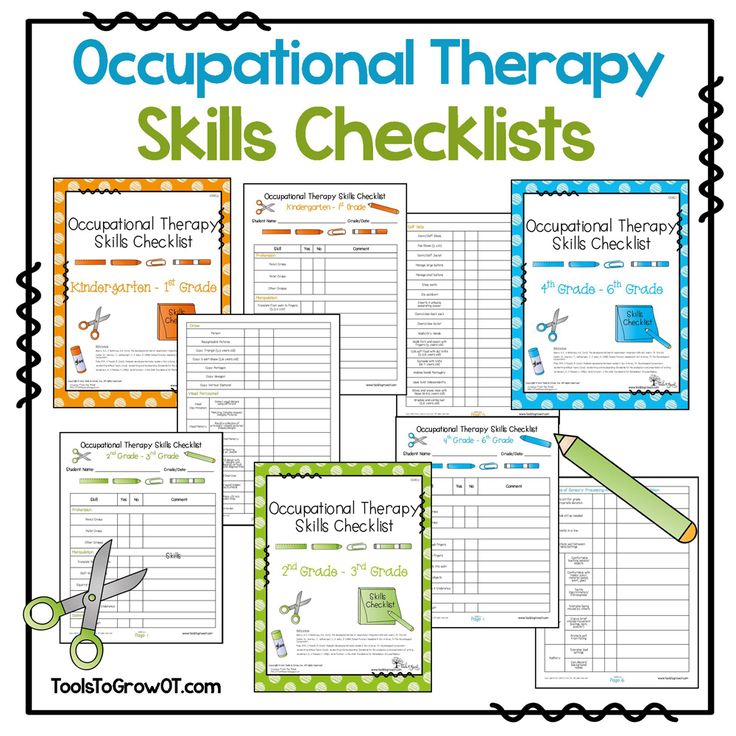
- Depends on adults for self-care tasks
What is school readiness?
For a child to be considered ready for school, they must have well-developed emotional, social, physical and cognitive skills.
General Readiness Skills
These are general skills that your child should learn during preschool. The following section discusses the four main areas of development.
- Physical and motor skills
- Visual, auditory and tactile perception
- Listening skills
- Communication skills and well developed language
- Pre-math skills
- Basic skills of chemistry, physics and biology (through the game)
- Problem Solving Skills
- Expression through art, music and stories
- Love for books
The four main areas of child development
All areas of development fall under one of these categories.
- Emotional - this refers to general maturity and self-expression
- Social - forming healthy relationships with others and managing conflicts
- Physical - gross and fine motor skills and general physical well-being
- Cognitive skills such as language, problem solving, creativity and math skills
School Ready Criteria
Below is a guide to the criteria your child must meet to be considered school ready.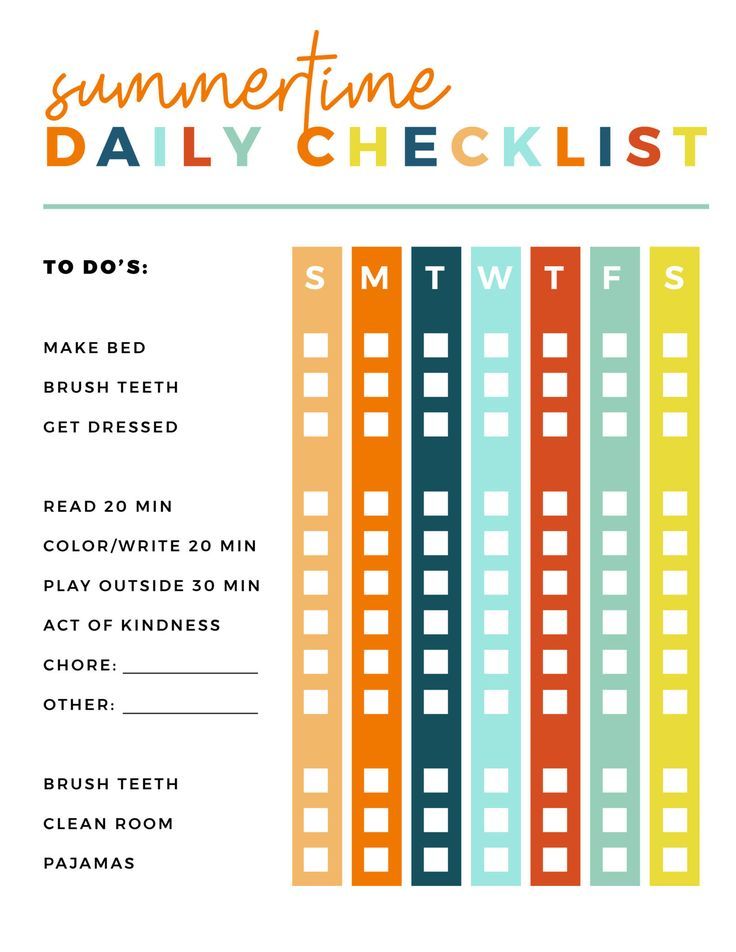
Because all children are different and develop at different rates, your child may be better at some skills than others. It is important that most of the criteria match your child, but don't worry if some skills are underdeveloped.
These gaps can be filled at home. See the section at the end on how you can work on these skills and help your child.
Milestones
Milestones are defined in four areas of development - emotional, social, physical and cognitive.
It is important to note that cognitive development is no more important than the other three areas. All of them are equally important for success in school.
For example, a lack of fine motor development can seriously affect your child's ability to learn to write, and a child who is not emotionally prepared to deal with their feelings of inability will reject learning.
Just by reading to your child before bed, you can find out if your child meets the emotional and social requirements, but you can also make some notes about physical and cognitive skills.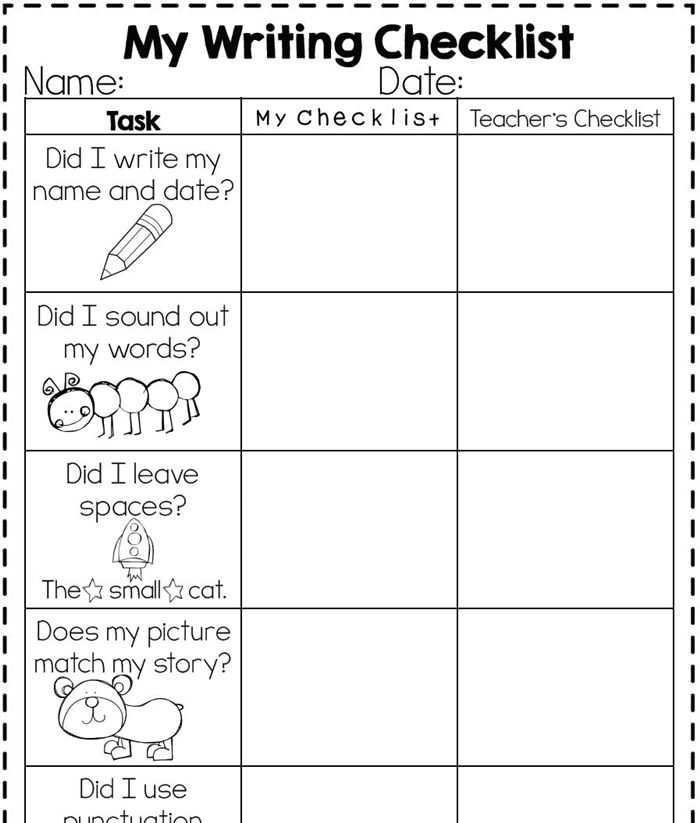
Certain skills, such as identifying rhyming words or determining the sequence of actions in a story, are very important in determining success in later reading. Make sure you pay enough attention to this.
Emotional development
| Not naughty when you leave him in the garden / activities / relatives |
| Does not require adult presence at all times |
| Has healthy self-esteem and feels confident |
| Accepts authority and knows how to follow simple rules at home and at school |
| Has good self-care skills - dressing, eating, going to the toilet independently. |
| Feels comfortable going somewhere without you - for example, stay with your grandmother, a friend. |
| Expresses feelings in a healthy way |
| Working on a task alone |
| Works quietly and quietly |
| Asks questions and seeks help when needed |
| Easily follows home and school routines |
| Dealing with frustration like a grown-up |
| Shows perseverance and purposefulness when working on a task |
Social development
| Knows how to keep a queue and share with others |
| Builds healthy relationships with peers |
| Associates with more than one peer (not just one "special" friend) |
| Shows perseverance when needed and is able to follow the lead of others |
| Handles conflicts correctly and independently (without always telling adults) |
Shows mannerisms without prompting, such as saying "please", "thank you" and "sorry".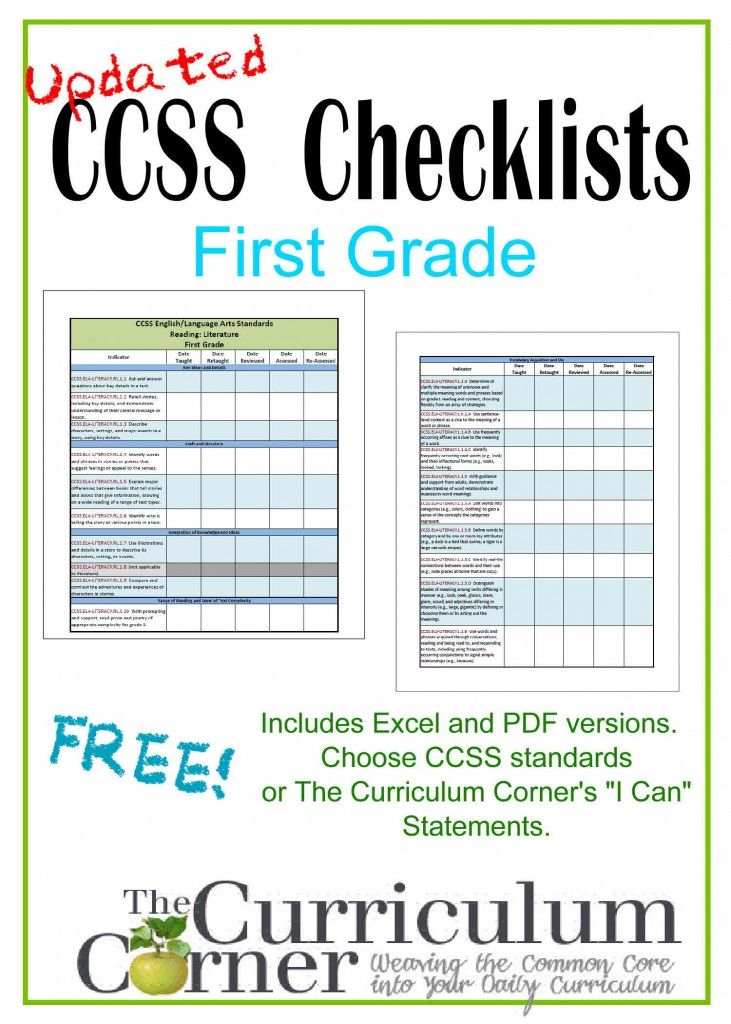 |
| Respects the property of others |
| Works in a group |
| Shows respect and listens when someone is talking - peer or adult |
Physical and motor development
| Runs, climbs and moves easily |
| Balances when walking on beam |
| Distinguishes between left and right |
| Throws and catches the ball |
| Can walk in a straight line |
| Jumps on one leg |
| Can stand on one leg for 5 seconds while maintaining balance. |
| Able to skip a turn in the game |
| Midline crossing skill |
| Holds pencil or crayon correctly |
| Cuts with scissors along the line |
| Performs activities that require fine motor skills |
| Knows his working hand |
| Moves rhythmically to music |
| Can sit upright for a long time |
Can sit cross-legged without falling.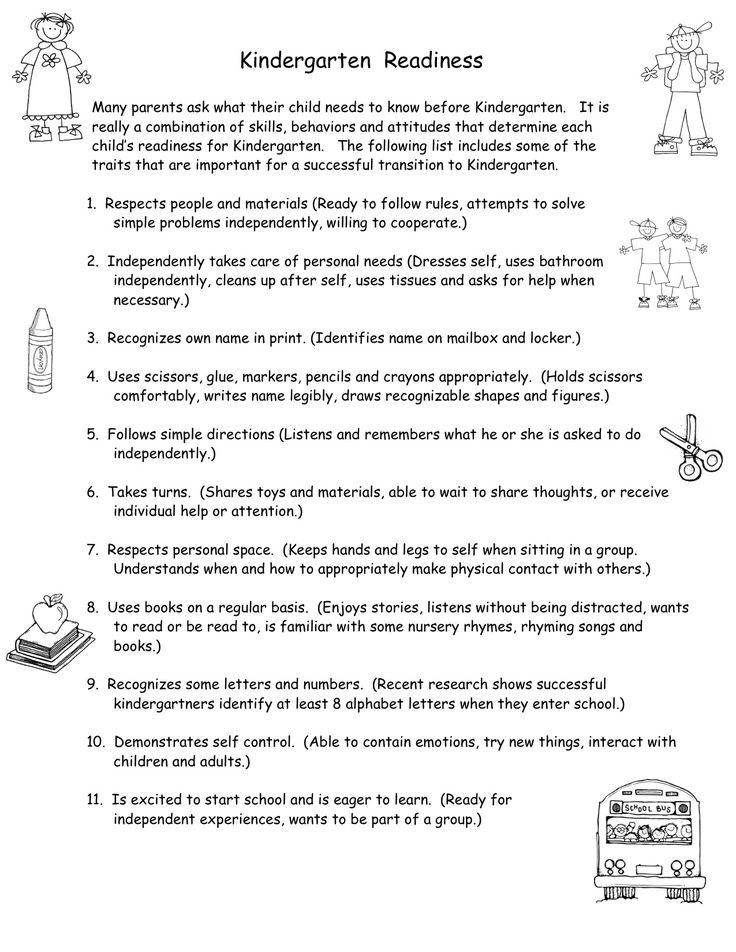 |
| Attends school/kindergarten regularly - doesn't get sick often |
Cognitive development
| Know shapes and colors |
| Collect puzzles |
| See the similarities and differences in the picture |
| Distinguishes the foreground from the background in an image |
| Estimates and plans |
| Groups, classifies and sorts objects and information |
| Can copy a simple pattern |
| Performs basic addition and subtraction |
| Uses mathematical terms such as greater than, less than, first, together, longer, shorter, and etc. |
| Has the concept of time - weekdays, seasons, morning / afternoon / evening, etc. |
| Understands cause and effect (e.g. the consequences of certain actions) |
| Solves a problem with understanding |
| Has excellent listening skills |
| Be able to follow verbal instructions (at least two or three parts) |
| Listens to a story and recalls events in sequence |
| Answer questions about history and remember details |
| Memorizes simple songs and nursery rhymes |
| Identifies words that rhyme |
| Hears initial and final sounds in words |
| Identifies and discusses characters in a story |
| Expresses an opinion on history |
| Interested in books and reading |
| Knows the names of some letters |
| Speaks clearly and uses grammar correctly |
| Has a well-developed vocabulary |
| Participates in discussions at home and at school |
Can concentrate on one task for at least 20 minutes.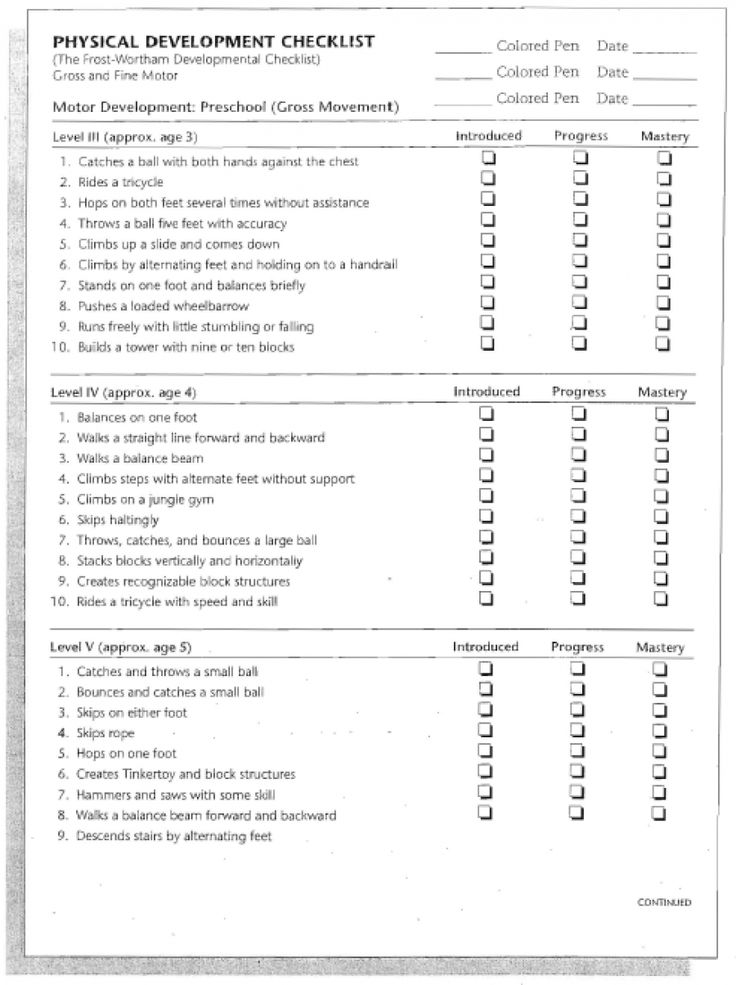 |
| Runs orders |
This checklist should give you an idea of what level your child is at.
How to prepare your child for school
Most likely your child is attending preschool and learning a lot, but you can also play a big role in helping him get ready for school.
We know that children learn much more from their parents than from teachers or peers. You are your children's first connection to the world. They learn non-stop by watching you and interacting with you.
The time you spend with your children is a good opportunity for learning and development. This does not mean that you need to stress children by forcing them to learn to read, write, count.
If you are a teacher or a parent who understands the importance of the general intellectual development of the child and appreciates the importance of the game approach for preschoolers, you will enjoy a comprehensive school preparation program for children.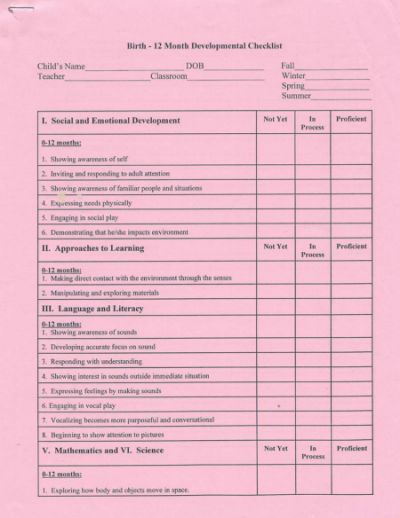
School readiness begins in infancy
School readiness is not a skill acquired suddenly when children reach a certain age. This is the totality of all the knowledge and skills that the child has learned from birth.
Being prepared is more about general maturity and skill level than learning specific things or gaining specific knowledge.
Learning through play
So how do your children learn all these wonderful skills that will prepare them for formal education?
Nothing but a good old-fashioned game. Unfortunately, this is becoming a bit underappreciated in today's society with many non-stop extracurricular activities in the schedule of children and introducing formal activities such as reading and writing too early.
Play is the most important activity for your child's overall development. The most important.
It is important that your child has enough opportunities to participate in all types of play.
There should be plenty of time for free play where your child decides what to play and where to play.
Getting ready for school and advice to parents
Any play activity that you participate in with your child is part of getting ready for school.
You can change your child's view of the learning process by conducting classes in a playful way.
The most important thing is that you are aware of the skills that children need to master before formal schooling and try to create a playful opportunity to practice these different skills.
What skills should you teach your child?
In short, your children need to learn the following basic skills through play:
- Fine motor skills
- Gross motor skills
- Language skills
- Listening skills
- Visual perception
- Auditory perception
- Preliminary reading skills
- Preliminary writing skills
- Early math skills
- Communication skills
- Emotional Intelligence
Why do children need these skills?
Everything your child needs to do in school will depend on these basic skills.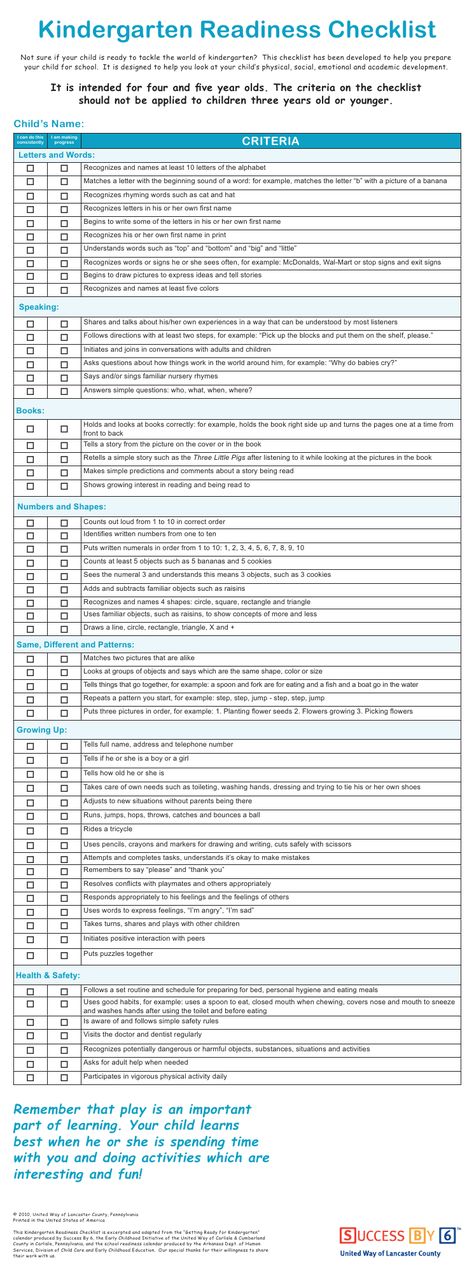 Learning to hold a pencil or write requires well-developed gross motor skills, fine motor skills and visual perception skills.
Learning to hold a pencil or write requires well-developed gross motor skills, fine motor skills and visual perception skills.
Children need excellent auditory and visual comprehension in order to learn to read. Learning the letters and the sounds they make isn't all there is to reading. Here are just a few of the skills needed to learn to read:
- Listening to sounds - for example, through learning nursery rhymes.
- Listen to rhyming words
- Distinguish whether sounds are the same or different
- Hear the beginning of a sound in a word and the end
- Hear missing sounds
- Seeing and identifying letters - understanding the shapes of letters is crucial
- Perception of similarities and differences (not to be confused with and b )
- Ability to identify patterns
- Good visual memory (remembering the general patterns of words)
Many tasks in school require a combination of different skills, so the best chance you can give your child is to make sure they have all the basic skills.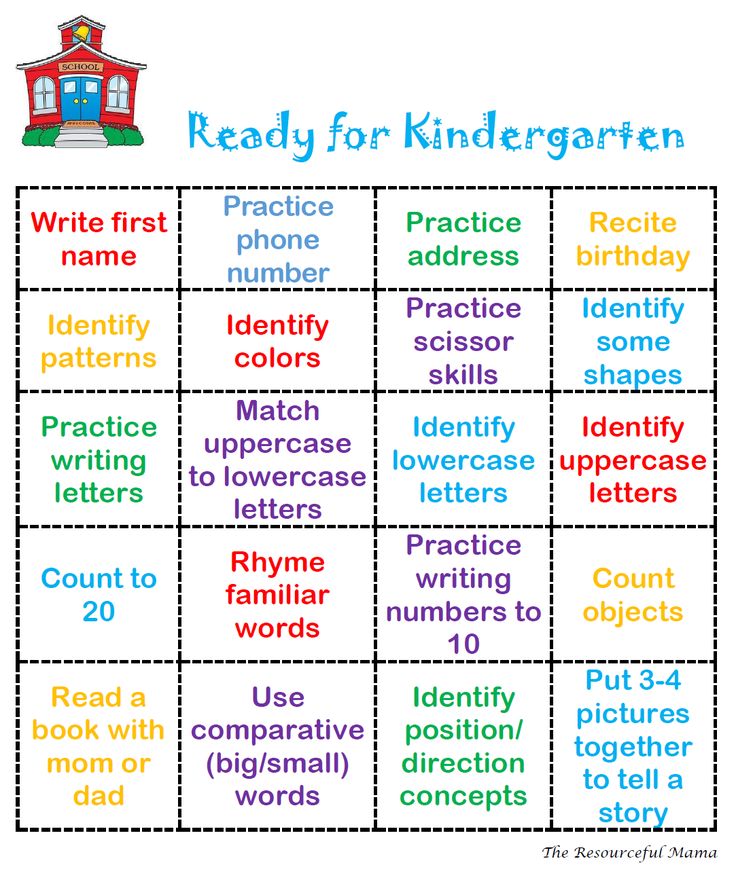
How to teach a child these skills?
Many of these skills will be acquired naturally through free play, but should also be learned through adult-led games and activities.
You can review all the skills mentioned above and find ideas for working on all of these components.
What if my child is not ready for school?
If you are going through the checklist and feel that your child is not ready for school in many ways, don't worry and don't think you did something wrong. We taught many children who re-stayed in kindergarten, and all of them soon became highly functioning and competent students.
The worst thing you can do is send your child to first grade if they are not ready. Constantly trying to catch up with others and feeling incompetent will not ultimately help their development.
Repeating training in the preparatory group is not a problem. Just let it be, if necessary, and continue to help your child with educators.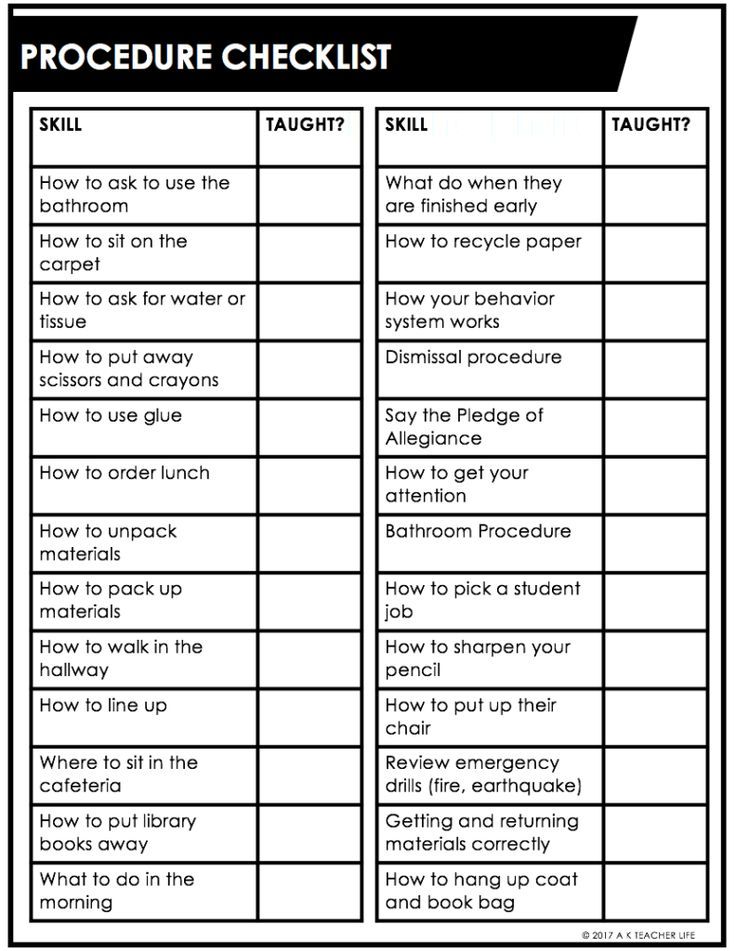
My Planet - 9 Essential Communication Skills
Why do we consider these skills to be the most important?
Because if a child is not able to calmly and effectively apply each of these skills, he is likely to try to get results in other ways. For example, screaming, hysteria, aggression or self-aggression.
So, NINE most important communication skills:
- Requesting an object or action
If you think about why we need communication, we need it mainly for requests. We ask: bring me coffee, let's go have breakfast, send me a report, and so on. Therefore, the skill of asking is the most basic skill with which we begin any education for a special child.
- Request for help
Every person at some time is faced with a situation where the solution to his problem can only come from someone else. When a child does not know how to ask for help, we notice that he cries or behaves inappropriately.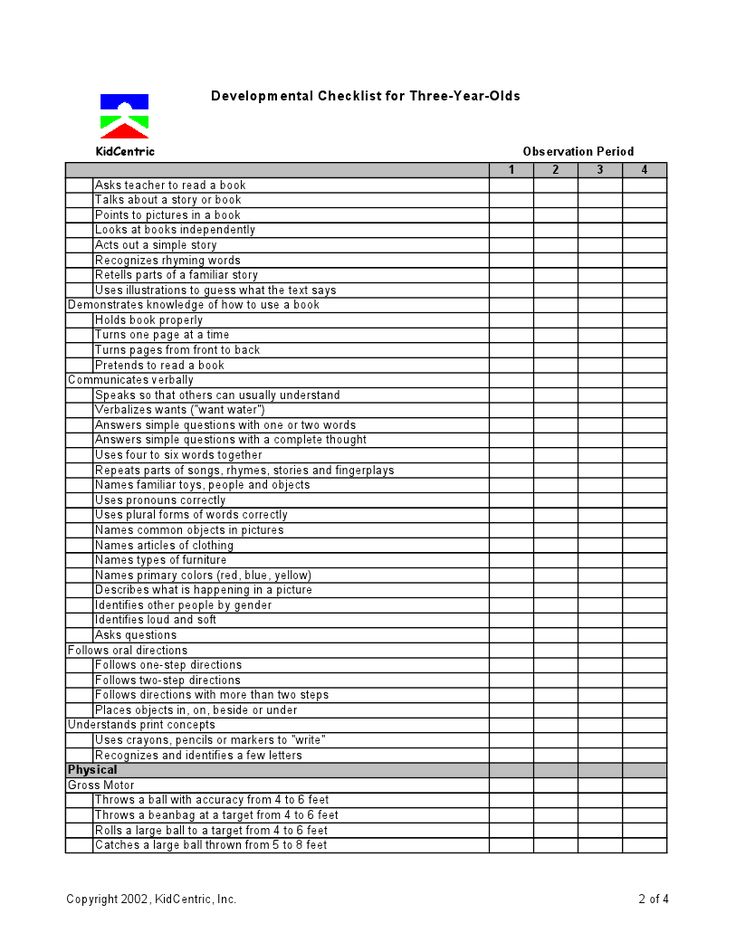
We teach a child to say "HELP" or give a card HELP - this is a large blue card in the form of a palm.
- "Wait" skill
Who cares about this skill? Everyone! Even adults often lack patience. Let's open a little secret - the child should be able to wait as many minutes as he is old. That is, if the child is 5 years old, he should be able to wait 5 minutes.
It is important to be able to wait, for example, in line at the checkout in a store, or at a bus stop. If the child does not know how to wait, the life of the mother will be very limited - she will not be able to go anywhere with him. Therefore, we teach children this skill in our kindergarten, specially creating waiting situations.
- Request for a break
We are all familiar with situations when the demands on us are too high or we are tired. In such cases, we ask for a break: we need some time to recuperate. As adults, we occasionally want to avoid or “escape” certain situations, and we can do this in a variety of socially acceptable ways.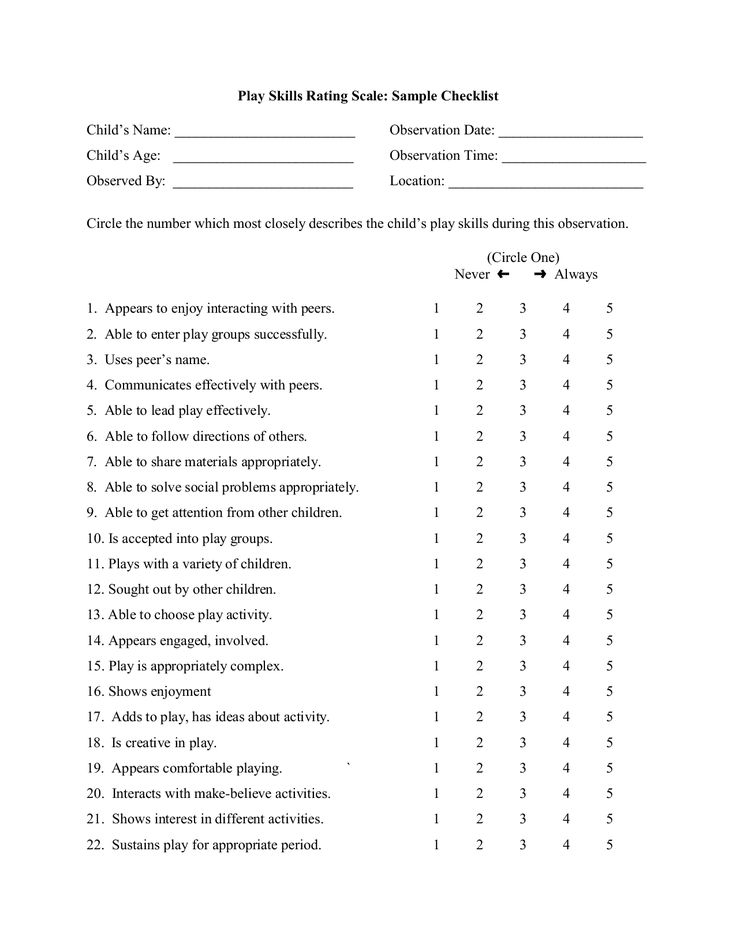 Children should also be able to calmly ask for a break, and we should teach them this. As with asking for help, it is important that the student be able to ask for a break before throwing a tantrum.
Children should also be able to calmly ask for a break, and we should teach them this. As with asking for help, it is important that the student be able to ask for a break before throwing a tantrum.
- Refusal
The ability to refuse unpleasant things or actions allows us to be understood. For example, a child hates semolina - he is sick of the smell of semolina. Grandmother offers Vanya this kind of porridge. How will Vanya react? It depends on Vanya's communication skills. He might be able to say, “No thanks!” However, if he is not able to do it calmly, he will still find a way to express his disgust - most likely in a harsh enough way that his grandmother is unlikely to like it.
- Consent
The ability to agree when you really want this object or action. It will be the ability to say: "Yes, that's what I want."
In general, the ability to agree and refuse are important safety skills for a child.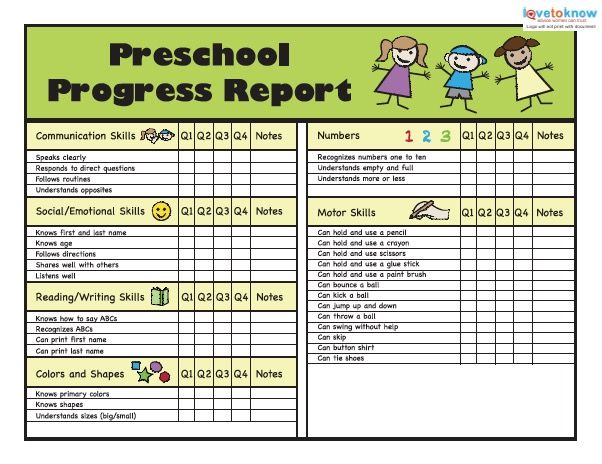 If the child can refuse to go with an unfamiliar adult to an unfamiliar place, the mother can be calm for him.
If the child can refuse to go with an unfamiliar adult to an unfamiliar place, the mother can be calm for him.
- Reaction to the message about the change of activity
Have you ever had a child cry or scream when you took him home from the playground? You decisively lead the child home, and after about twenty minutes he calms down, playing with a toy. Then you walk up to him and say, "It's time to go to dinner!" The child immediately starts crying and screaming again. You still take him to dinner, and he calms down after 5 minutes. What is going on? If you open your diary, you will surely see all the upcoming events and tasks that need to be completed. But the child does not see it. Visual "cues" can help them understand what kind of activity we are referring to, but sometimes just a visual cue is not enough.
- Follow instructions
The ability to follow instructions is very important due to potential risks, outdoors or in unsafe areas.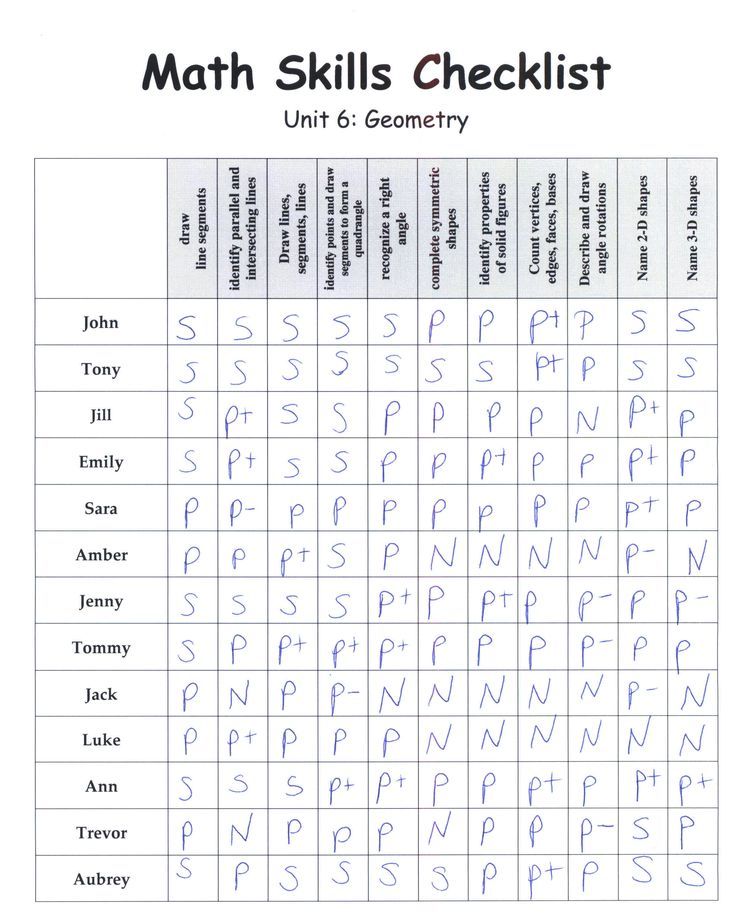 For example, if a parent says to a child: “STOP! The car is moving!”, the consequences of not following this instruction can be tragic.
For example, if a parent says to a child: “STOP! The car is moving!”, the consequences of not following this instruction can be tragic.
Same with instructions COME TO ME, COME HERE. Thus, we must train our students to respond to both visual and verbal instructions, whether students communicate through speech, gestures, or PEX cards.
- Schedule follow
Most adults keep track of all the important things they have to do in a day, week, or month using some kind of calendar entry system. Children also want to know what is expected of them and when certain events will occur.
We must also provide our students with a visual system, and for those who cannot read, we must use visual and simple drawings.
Parents sometimes ask why we need a visual schedule? After all, my child understands speech well, I told him where we were going, and he understood everything!
Even if the child understands the addressed speech well, the visual instruction will help him to orient himself faster and better.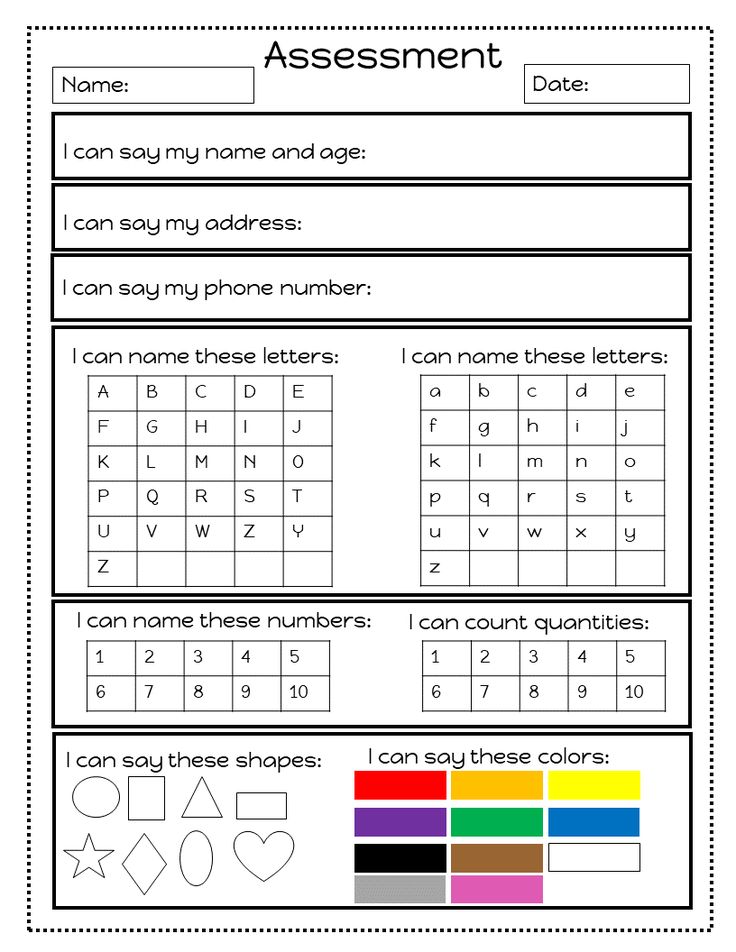
Let's take an example: a friend tells us a new recipe for a complex cake. Surely, from hearing, we will not understand all the details of the new recipe. A VISUAL RECIPE will help us - we will google and find pictures of the necessary ingredients and stages of making a cake!
Critical Communication Skills Checklist
Before starting a communication class, it is helpful to know how your child communicates now.
- Can he/she ask for specific items or activities?
- What does he do when you ask him to wait?
- How does he react to the change of activity?
Therefore, in our kindergarten and in My Planet groups, we first test children by compiling a checklist of the most important skills, and then we develop a PLAN for teaching critical 9 communication skills, prioritizing the target skills.
Source - Alternative Communication System PECS, L. Frost, E. Bondy, Chapter 2, Purposeful Communication.